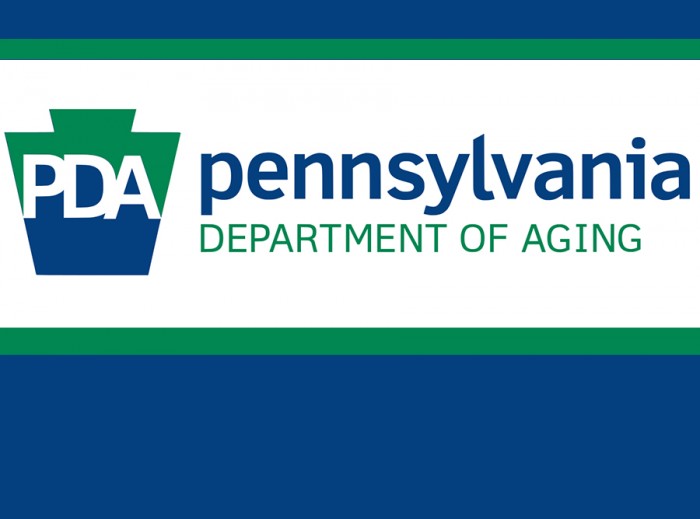Commonwealth Civilian Coronavirus Corps to Support Fall COVID-19 Recovery Efforts
Gov. Wolf Signs Executive Order to Provide Civil Immunity for Health Care Providers
Gov. Wolf Signs Executive Order to Provide Civil Immunity for Health Care Providers
May 06, 2020
Today, Governor Tom Wolf signed an executive order to afford health care practitioners protection against liability for good faith actions taken in response to the call to supplement the health care provider workforce during the COVID-19 pandemic.
RCPA Annual Membership Webcast & Member Vote May 12
Office of Advocacy and Reform Announces Plan to Build a Trauma-Informed Pennsylvania
FOR IMMEDIATE RELEASE
May 7, 2020
View Online
Harrisburg, PA – The Office of Advocacy and Reform (OAR), established by Governor Tom Wolf’s 2019 executive order to protect Pennsylvania’s vulnerable populations, today announced the launch of a volunteer think tank comprised of 25 experts representing a diversity of fields and backgrounds who will develop a plan to make Pennsylvania a trauma-informed state.
“The people of Pennsylvania are compassionate, thoughtful and resilient. We take care of each other, and that drive to protect our families and our neighbors has never been more obvious than these past few months as we’ve bonded together to fight COVID-19,” said Gov. Wolf. “This group of experts, led by the Office of Advocacy and Reform, will build on this foundation to ensure that local and state government agencies use trauma-informed principles to guide all decisions that affect Pennsylvanians and that we continue to improve our systems that protect vulnerable populations. Thank you to these volunteers for their efforts to build a trauma-informed Pennsylvania.”
As a companion to the governor’s multi-agency effort and anti-stigma campaign, Reach Out PA: Your Mental Health Matters, aimed at expanding resources and the state’s comprehensive support of mental health and related health care priorities in Pennsylvania, OAR announced in January that the agency was looking for a group of cutting-edge thinkers and practitioners in the field of trauma, and how the brain heals from its effects, to form a think tank.
The group will focus on setting guidelines, benchmarks, and goals for trauma-informed care across the commonwealth. In addition, the group is also expanding its original mandate to strategize how to heal the trauma that all Pennsylvanians are experiencing due to the COVID-19 pandemic.
“Our work is more important than ever,” said Dan Jurman, Executive Director of the Office of Advocacy and Reform. “Every Pennsylvanian is experiencing trauma and toxic stress right now, affecting the behavioral health of each and every one of us.”
The 25 experts chosen to participate are from urban, suburban, and rural communities throughout the commonwealth and represent the fields of psychiatry, psychology, law enforcement, county government, clergy, social work, counseling, mindfulness, community development, education, sexual assault recovery, addiction recovery, domestic violence services, child maltreatment solutions, nursing, public health, pediatric medicine, prison re-entry, and philanthropy. Photos and bios of think tank members are available here.
“The diversity of experiences and perspectives represented in this group will be absolutely key to the success of our mission,” Jurman said. “I’m grateful to everyone who raised their hand to help, and I look forward to working with this group on a plan that will make a positive difference in the lives of so many vulnerable Pennsylvanians.”
The think tank will meet several times over the next few months to collaborate on setting trauma-informed standards that can guide the work of state agencies, as well as local government and nonprofit organizations across the commonwealth. When the first phase is completed, the members of the think tank who wish to continue serving will shift to an advisory role, helping OAR build a network of trauma-informed providers who learn from each other, support pilots and innovation, share best practices, and push the initial guidelines even further over time as our understanding of brain science and trauma-informed approaches evolves and broadens.
Another 43 think tank applicants who weren’t chosen to participate in this first phase of plan development have been invited to assist with building the statewide network.
OAR plans to make the resulting plan to transform Pennsylvania into a trauma-informed state public in July.
“This current crisis has shown us all how vulnerable we are,” Jurman added, “This is our chance to eliminate stigma and misunderstanding and replace them with knowledge about how the brain works and empathy for each other to fundamentally change the way we approach trauma as a commonwealth.”
MEDIA CONTACT: Lyndsay Kensinger, Governor’s Office, [email protected]
Erin James, DHS, [email protected]
# # #
Department of Aging Receives $3 Million to Support Aging and Disability Resource Centers During Pandemic
FOR IMMEDIATE RELEASE
May 6, 2020
Harrisburg, PA — The Pennsylvania Department of Aging’s Aging and Disability Resource Centers (ADRC) Office has been awarded $3 million from the Department of Health and Human Services’ Administration for Community Living to support efforts to mitigate and respond to the COVID-19 pandemic.
The ADRC, also known as the PA Link to Aging and Disability Resources, is a statewide program that provides information and referral services to older adults and individuals with disabilities. This program helps individuals with activities of daily living by connecting them with medical and non-medical supports and services. Consumers, family members, caregivers and providers, can contact the PA Link through the helpline,1-800-753-8827, or at www.aging.Pa.gov/local-resources/pa-link.
Funds from this grant will enable the PA Link to support the operations and capacity of the aging and disability network, increase coordination of efforts and provide critical access to services for those populations most at risk from COVID-19.
“During COVID-19, being able to obtain information and access support services is a vital concern for older adults, persons with disabilities and their caregivers,” said Aging Secretary Robert Torres. “The PA Link provides seamless connection to a vast array of services, supports and person-centered counseling delivered in local communities throughout the Commonwealth. This federal funding will help PA Link boost capacity and improve connectivity to serve consumers during this pandemic and beyond.”
The PA Link will use the grant funds to administer the following activities:
Virtual Management of ADRC Access Functions: Implement e-services for PA Link staff and partners to improve business operations related to accessing PA Link programs.
Care Transition Services: Assist those most at risk of COVID-19 who are seeking transitional support from hospital or nursing home to a home setting.
Food Order and Delivery: Collaborate with local grocery stores, restaurants and/or online/mobile food order and delivery services to provide delivered groceries and food.
Assistive Technology: Help older adults, individuals with disabilities, caregivers and care providers learn how to use telehealth technologies to provide and receive needed services. The Department will partner with the Assistive Technology Act program to provide assistive technology assessments, devices and training.
Personal Protective Equipment (PPE): Provide PPE for community partners to ensure in-home supports can be maintained safely.
Marketing of PA Link Helpline and Outreach: Increase public awareness of the PA Link helpline,1-800-753-8827.
Reduce Social Isolation: Provide individuals with the ability to request periodic check-in calls by trained staff and increase awareness of low-cost programs that connect individuals through broadband and telecommunication equipment.
Information and Counseling Services: Increase the capacity of the PA Link network partners to respond to requests from individuals in need of resource information, assistance with referrals and person-centered counseling.
Visit the PA Department of Health’s dedicated Coronavirus webpage here for the most up-to-date information regarding COVID-19.
Learn more about the various programs offered by the Pennsylvania Department of Aging here.
MEDIA CONTACTS: Karen Gray: 717-705-3702 or [email protected]
Jack Eilber: 717-585-4045 or [email protected]
# # #
Wolf Administration: No One Should Go Hungry, Pennsylvanians Should Apply for Programs Designed for ‘Times Like These’
FOR IMMEDIATE RELEASE
May 6, 2020
Harrisburg, PA – First Lady Frances Wolf, Department of Human Services Secretary Teresa Miller, and Department of Agriculture Secretary Russell Redding today outlined food assistance programs available for Pennsylvanians to enroll in to get them through current COVID-19-induced tough times. They said Pennsylvanians should feel no shame in accepting state and federal food benefits that were, in fact, designed for unprecedented times like the coronavirus pandemic.
“The stigma that exists around accessing food programs is a huge detriment to the health, wellness, and overall safety of Pennsylvanians,” said First Lady Frances Wolf. “While the need for these programs continues to grow during the COVID-19 pandemic, it is crucial that we encourage our fellow Pennsylvanians to use these benefits available to them. Benefits they invested in. Benefits that will keep them nourished and their families whole. We must refrain from shaming them for needing help. If we do, we shame ourselves. The last thing that the Wolf Administration wants to see is a Pennsylvania going hungry because we were shamed and embarrassed to reach out for the help we so desperately need.”
While most eligibility verifications for food assistance have been waived to reduce barriers to access during COVID-19 mitigation in Pennsylvania, there are several state programs that still require individuals to seek out and enroll in individually to qualify and receive benefit. These programs include:
- Supplemental Nutrition Assistance Program (SNAP): Formerly known as food stamps, SNAP provides assistance to low-income and working Pennsylvanians, allowing them to purchase produce and groceries for themselves and their family. SNAP helps more than 1.8 million Pennsylvanians, including about 700,000 children, about 690,000 people with disabilities, and about 300,000 older adults, expand purchasing power to ensure their household has enough food to avoid going hungry. SNAP is issued through a monthly payment to an electronic benefit transfer card, and benefits are based off income and household size. People can apply for SNAP online at www.compass.state.pa.us online at any time.
- Senior Farmers Market Nutrition Program: This program runs from June 1 through November 30 each year. Seniors must be 60 or older by December 31 of the program year and have income at or below 185% of the U.S. poverty level. Eligible seniors should call their county Aging office for information on distribution of vouchers. Vouchers are distributed on a first come, first serve basis.
- WIC Farmers Market Nutrition Program: This program runs from June 1 through November 30 each year, and recipients must be on the WIC program to receive this benefit. Children 1-year and older, and pregnant/post-partum women will receive vouchers for the program during their quarterly WIC visit (May through September).
- Commodity Supplemental Food Program: Eligible participants include individuals who are at least 60 years old and whose household income is at or below 130% of the U.S. poverty level. To qualify, individuals must complete an application with proof of income. Questions about where/how to access this program can be directed to the Department of Agriculture’s Bureau of Food Assistance by calling 1-800-468-2433 or emailing [email protected].
- Special Supplemental Nutrition Program for Women, Infants, and Children (WIC): Women who are pregnant or have had a baby in the past six months, or twelve if breastfeeding; infants and children under the age of five; and fathers, grandparents, and foster parents who are the legal guardian of a child under age five, may apply for WIC. WIC applicants must reside in Pennsylvania, have a medical or nutritional risk, and have a gross household income that does not exceed 185% of the U.S. poverty level.
In addition to applying for the benefits above, Pennsylvanians can receive immediate access to food resources by visiting a Feeding Pennsylvania or Hunger-Free Pennsylvania member food bank. Pennsylvanians out of work and without pay as a result of COVID-19 are eligible to receive state and federally sourced foods from Pennsylvania’s food banks and pantries.
“Programs and support networks like these exist to help all of us in the moments we cannot plan for — the times that an injury or an accident changes our life and sense of security as individuals, and the times that a global pandemic alters our daily life as a society,” said Secretary Miller. “These programs are needed for many in the best of times, and they are critical in the worst. We cannot forget this when this moment passes, and I urge anyone who knows someone who is struggling to make ends meet or needs assistance themselves to remember that help is always available.”
Lifesaving COVID-19 mitigation efforts led to more than 1.6 million Pennsylvanians applying for unemployment benefits and placed many of those in a position of worrying about feeding themselves and their families. The administration has worked hard to remove barriers to access, advocate for, and invest in Pennsylvania’s charitable food system and raise statewide awareness of availability of resources. In addition to working with the charitable food system, the Department of Agriculture has encouraged food production and processing operations to continue and provided comprehensive guidance to the agriculture and food supply chain to ensure food continues to be available and accessible.
“COVID-19 has created a broad community of need, but Pennsylvania’s charitable food system was designed for times like these. The system was designed to alleviate questions of paying for utilities or food, designed to help people stay on their feet,” said Agriculture Secretary Redding. “Food does more than feed our bodies. It has the power to lift spirits and provide comfort. This nutrition and comfort is a right for all of us. These times will pass; don’t spend them worrying about food. Pennsylvania’s food system is here for you.”
For more information on food security in Pennsylvania including information about resources and actions taken by the Wolf Administration, visit agriculture.pa.gov/foodsecurity. For the most accurate and timely information related to Health in Pennsylvania, visit on.pa.gov/coronavirus.
MEDIA CONTACT: Shannon Powers, Agriculture – [email protected]
Erin James, DHS – [email protected]
# # #
RELIAS to Host Free Webinar May 12, 2020
“Making Tough Decisions In Turbulent Times: 12 Steps To Creating Your Data-Driven Organization”
Does Your Executive Team Have the Data Needed For Nimble Decision Making?
Join Monica E. Oss, the Chief Executive Officer of OPEN MINDS and Carol Clayton, PhD, the Chief, Translational Neuroscience of Relias for a briefing on surviving the current unexpected financial disruption.
Executives of specialty provider organizations need to embrace a new approach for developing a strategy to move forward. Executives need the right information, on a timely basis, to navigate times of economic turbulence — both now and in the future. Often this vital information exists somewhere in the organization, but it is not integrated for reporting in a format to help drive decision making.
This webinar will take place on Tuesday, May 12, 2020 from 3:00 pm – 4:00 pm
Register online today.
In this session, we will take executives through a rapid-fire process of becoming a data-driven organization.
During this session attendees will review:
- The types of information that are most useful for strategic decision making;
- A field-tested, twelve-step process to move your executive team and your entire organization to data-driven decision making; and
- A case study and examples of best practice performance reporting.
















